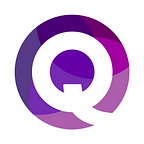Health Talk: An AI-Powered Scan of Healthcare Conversations Online
Mandy woke up with a severe stomach ache one morning. She couldn’t figure out what caused it, so she turned to the Internet. She googled “stomach ache causes”, “stomach ache cure”, “stomach ache home remedy”, “when do I need to see a doctor if I have severe stomach ache?”, and “health clinic near me.” She also checked Reddit forums before taking a call on whether she needed to visit a doctor or not — because it would entail driving to a clinic miles away, waiting in line for an appointment, and possibly being prescribed strong anti-biotics that she would rather avoid unless necessary. Her online research helps her make a more informed decision.
Meanwhile, Kevin discovered a wart on his arm. He wasn’t sure if it was just some bacteria or if he should be worried. He too turned to Google to do some preliminary research on warts, how to identify cancerous warts, and determine if he needs to visit a doctor or wait it out. A quick scan of medical websites and YouTube videos with visuals of warts similar to his made him get some medical tests done immediately.
22% of all Google searches today are health-related. In fact, over 75% of Americans use the Internet to research their health symptoms and 94% of patients use online reviews to evaluate healthcare providers. These are significant numbers and reiterate that the Internet has become an integral part of our lives, including healthcare. From awareness and diagnosis to treatment and disease management, there are numerous digital touchpoints in a patient’s healthcare journey today.
With the help of Sphere, we studied online discussions on healthcare across social media platforms. What are patients talking about? What kind of information do they seek? How are doctors and healthcare professionals responding? How can we help?
Conversations on Search
As the go-to search engine for most queries, we see Google searches related to the how, what, why, and where for most diseases and health conditions. It’s the first step for getting a basic understanding of the issue prior to consulting an expert. It is also the primary site for self-diagnosis and treatment of minor ailments and sourcing relevant resources for further inquiry.
Conversations on Social Media
Did you know that 32% of U.S. users post about the health experiences of friends and family on social media? In fact, 84% of consumers trust online reviews as much as personal recommendations. Patients turn to social media for reliable information on symptoms, research on causes and cures, and validate the diagnosis with the help of reviews and discussion forums. They seek support and feedback from online patient communities and share feedback on doctors and hospitals post-treatment.
To get a better sense of the discourse on each social platform, we scanned through posts about common health conditions.
On YouTube, healthcare content broadly falls under the following themes: videos about awareness and prevention, treatment (how to diagnose, what to do, who to consult), the science behind the disease (explainers, expert speakers), patient experiences, and policy implications. They cater to both patients as well as doctors and medical students. For the latter, there are countless tutorials for medical exams, videos about the life of doctors, and scientific findings, while videos targeting patients mostly cover common Do’s and Don’ts. The comments section acts as an engagement platform where patients and caregivers share their personal experiences, attempt to diagnose disorders based on common symptoms, and seek advice from experts they may not have access to in real life.
Twitter conversations range from posts about medical conferences and research papers to celebratory posts after successful treatments. Doctors post about best practices, medical advice for patients, and interviews on relevant topics. Conversations on issues like Cancer include informative content on early diagnosis, disseminated with the help of dedicated hashtags and days. Fundraisers for cancer treatment are shared widely here, while patients open up about their chemotherapy experience and express the joy of becoming cancer-free.
Pediatrics often take to Twitter to post about memorable moments with their little patients, while conversations on dermatology tend to revolve around common skin treatments, health treatments, and skin-related symptoms. Mental health and psychiatry tweets cover stories about suicide, fundraisers to support families and caregivers, articles about psychiatry and mental health, toolkits by international organizations, scientific papers, and therapy jokes.
Healthcare content on Instagram ranges from information about how to diagnose diseases and health conditions to expert panels, support groups, and success stories of patients. Easy-to-understand graphics, explainer videos, and Instagram Lives by healthcare experts dominate healthcare handles and there are curated hashtags used for different conditions and diseases. The content covered mostly relates to common symptoms and diagnoses, personal experiences, myths, treatments, online consultations with experts, and home remedies.
Reddit discussions on topics like Diabetes are laced with humor (for example, jokes about the high cost of insulin). Dermatology-related threads have pictures of skin problems and updates as they heal. Threads on women’s health, mental health, and pediatrics are an exchange of information and personal experiences. Reddit forums act as a safe space for people to ask questions and receive advice from fellow community members.
People are talking about health on social platforms at a much greater scale than we imagine and healthcare professionals need to meet them where they are to transmit correct medical information and point them to the right experts. To do this, healthcare professionals need to first understand the needs and ongoing conversations in greater detail, and then innovate on how they can improve service delivery in a manner that makes sense for our times. AI-powered healthcare research can aid this process.
If you’d like to know more, check out Quilt Health and write to us at anurag.banerjee@quilt.ai. We would love to chat!
